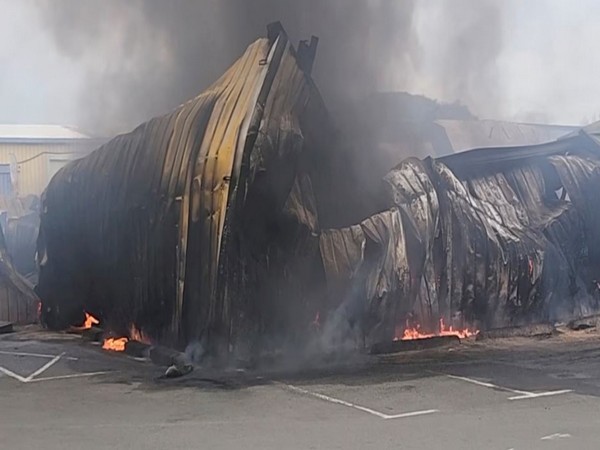France has declared a state of emergency on the Pacific archipelago of New Caledonia after violent protests flared up against electoral reforms killing one police officer and three others, the Washington Post reported.
Notably, New Caledonia is a French overseas territory located hundreds of miles off Australia’s eastern coast.
The violence — the worst in decades — is the latest flash point in long-running tensions over Paris’ role in the archipelago.
“On behalf of the government, I reiterate before you the call for calm and appeasement,” government spokeswoman Prisca Thevenot said Wednesday at a news briefing following a ministerial meeting.
She paid tribute to the four people who lost their lives in the unrest and called for “the resumption of political dialogue” to find a solution to the violence.
The state of emergency came into effect at 8 pm (Paris time) on Wednesday and 5 am in Noumea, the island’s capital.
According to French law, a state of emergency can be declared in situations of “imminent danger resulting from serious breaches of public order.”
It grants local authorities expanded powers, to cut off public access to certain areas, for example, and to execute searches and prevent certain individuals from entering those areas if they are deemed to represent a threat to public safety, the Washington Post reported.
“All violence is intolerable and will be the subject of a relentless response to ensure the return of order,” a statement released by French President Emmanuel Macron’s office on Wednesday read.
Reacting to the violent protest, French Prime Minister Gabriel Attal said, “Since the start of the week, New Caledonia has been hit by violence of a rare intensity.” He added that a state of emergency “will allow us to roll out massive means to restore order.”
The unrest began on Monday as French lawmakers prepared to vote on a decision to expand voting rights in the territory. However, critics argue that this could marginalize the Indigenous Kanak population and benefit pro-French politicians. The National Assembly adopted the revision overnight.
But, for the legislation to become a law, both chambers of parliament still must vote a final time, the Voice of America reported.
Groups representing the Kanak people — who make up about 40 per cent of the territory’s 3,00,000-strong population — have long sought independence, while the descendants of European colonizers wish to remain part of France, according to the Washington Post.
Under the 1998 Noumea Accord, which helped end a decade of unrest, voting was to be restricted to Kanaks and individuals born before 1998. But, the new constitutional measure will allow anyone who has been a resident of New Caledonia for 10 years to vote in local elections — diluting the power of the Kanaks.
“We feel oppressed, we’re angry,” Voice of America quoted a woman as saying to the Caledonia TV. She questioned whether people in France were listening to Kanaks like herself.
French Minister of the Interior and Overseas Territories Gerald Darmanin told RTL French radio early Wednesday that “hundreds” of people were injured, including about 100 police officers and gendarmes whose barracks were attacked with axes and live ammunition.
“Calm must absolutely be restored,” he said. “There are hundreds of injured in New Caledonia, dozens of houses and businesses that have been burned, set alight.”
The French High Commission informed on Wednesday that at least 130 people had been arrested. It also reported “numerous” incidents of arson and looting against businesses, infrastructure, and public buildings. The mission added that there had been an attempted ‘prison break’.
The French government has announced the deployment of additional police officers and gendarmes as reinforcements.
French authorities also imposed an overnight curfew and banned gatherings in the capital, Noumea. New Caledonia’s La Tontouta International Airport is closed to commercial flights.
The mineral-rich New Caledonia was annexed by France in 1853, and all inhabitants were given French citizenship in 1957. However, the territory has seen decades of tensions between Kanaks and European descendants over the issue of independence, according to the Washington Post.
In addition to the rules on voting rights, the 1998 Noumea agreement set out provisions for three referendums to decide New Caledonia’s future, but each one rejected ‘independence’. Notably, the last vote, held in December 2021 was boycotted by pro-independence parties, because of the coronavirus pandemic.-ANI


